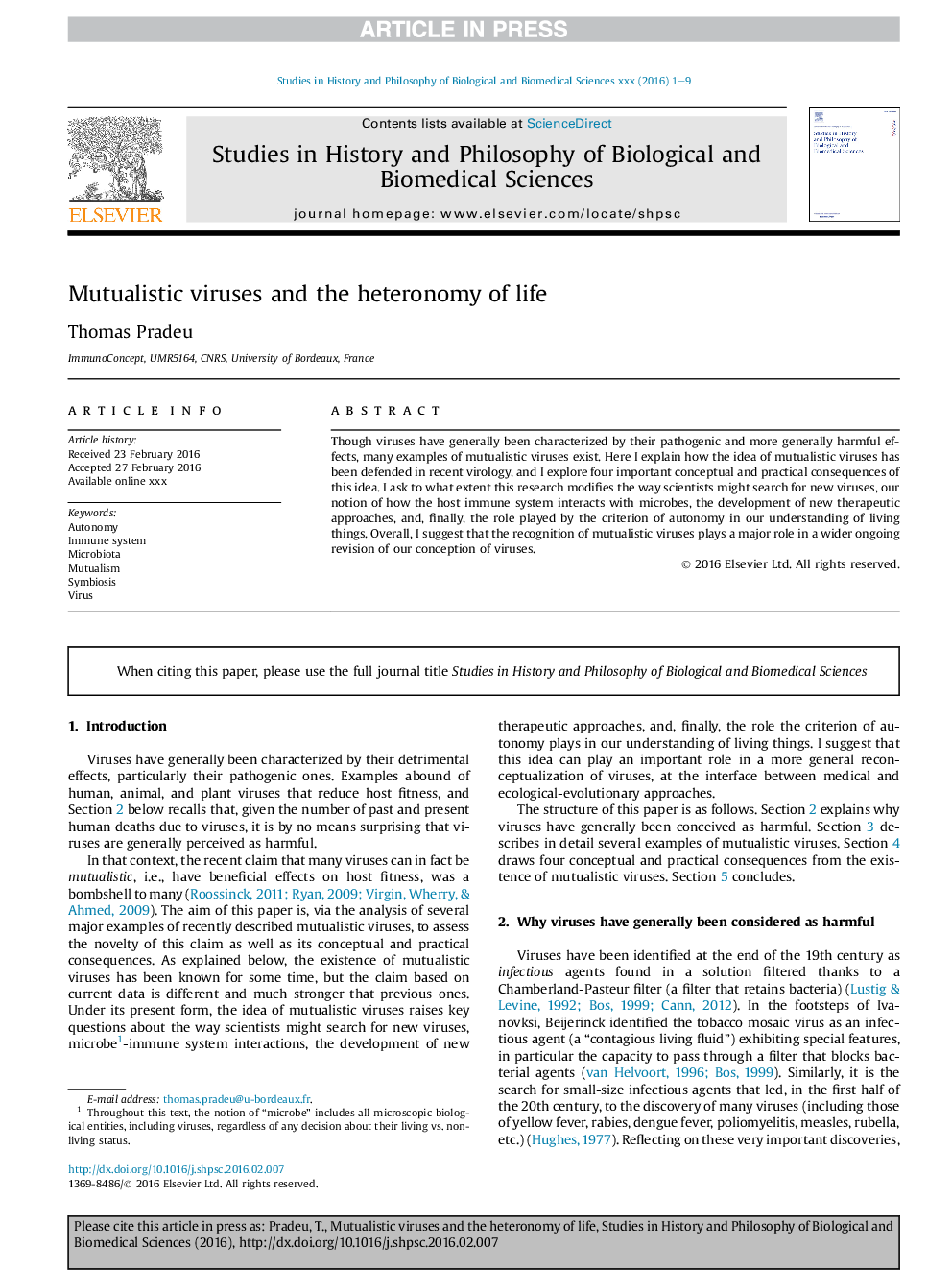| Article ID | Journal | Published Year | Pages | File Type |
|---|---|---|---|---|
| 7552163 | Studies in History and Philosophy of Science Part C: Studies in History and Philosophy of Biological and Biomedical Sciences | 2016 | 9 Pages |
Abstract
Though viruses have generally been characterized by their pathogenic and more generally harmful effects, many examples of mutualistic viruses exist. Here I explain how the idea of mutualistic viruses has been defended in recent virology, and I explore four important conceptual and practical consequences of this idea. I ask to what extent this research modifies the way scientists might search for new viruses, our notion of how the host immune system interacts with microbes, the development of new therapeutic approaches, and, finally, the role played by the criterion of autonomy in our understanding of living things. Overall, I suggest that the recognition of mutualistic viruses plays a major role in a wider ongoing revision of our conception of viruses.
Related Topics
Life Sciences
Agricultural and Biological Sciences
Agricultural and Biological Sciences (General)
Authors
Thomas Pradeu,
